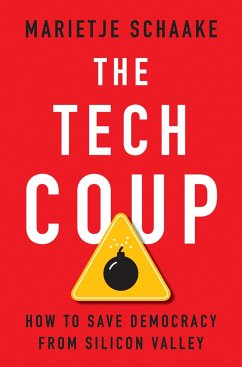"As a member of the European Parliament, author Marietje Schaake was on the vanguard of politicians who recognized that no technology is inherently "democratic"; only with careful regulations can we protect the disruption of democracy from AI and other innovations that might undermine it. And yet, such laws are largely absent, especially in the United States, which lags behind European regulators and has long subscribed to the Silicon Valley mantra that regulation stifles innovation. This problem has become more urgent than ever as an ecosystem of small and invisible tech players are gradually taking over crucial tasks formerly exercised by democratic governments-from intelligence gathering, to policing, voting, and more. Some tech companies have even come to resemble nations in terms of their structure and scale. Tech companies now have the means and the abilities to set policies in the digital world-a world which comprises more of our lives every day. In this book, Schaake illuminates the ways in which democracies around the world are increasingly run on technology that few in government can understand, let alone regulate. Technologies we expected to help boost democracy (such as Twitter during the Arab Spring uprisings) are now being used by authoritarians, and more and more digital products created in democracies are being exported and used for repressive means elsewhere. Schaake also discusses what can be done, pointing to successes within some European counties, as well as ideas not yet in place but necessary for the preservation of democracy moving forward. The result is a book balanced between presenting the dangers we face in clear terms and outlining a vision for a safer, more democratic future"--
Hinweis: Dieser Artikel kann nur an eine deutsche Lieferadresse ausgeliefert werden.
Hinweis: Dieser Artikel kann nur an eine deutsche Lieferadresse ausgeliefert werden.








